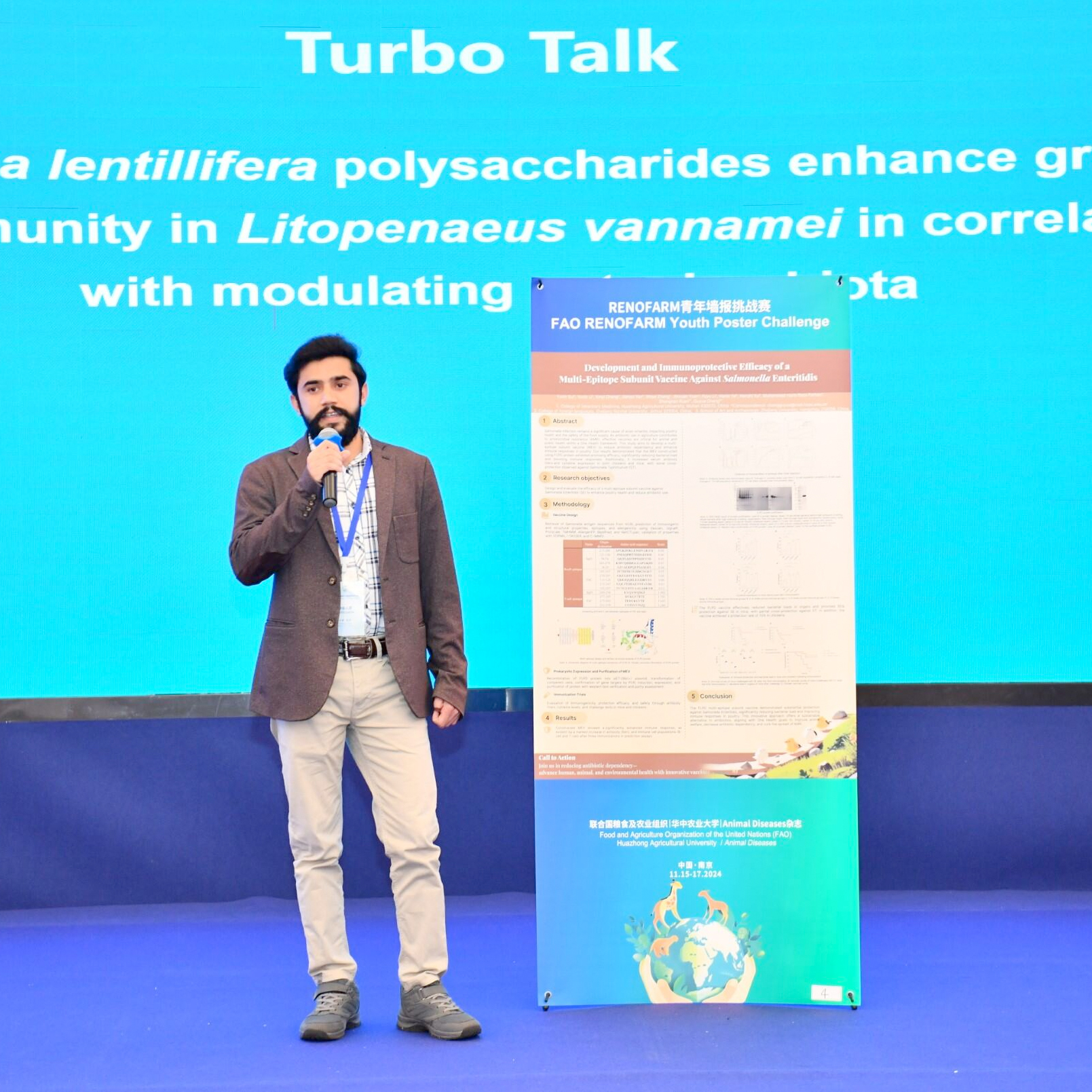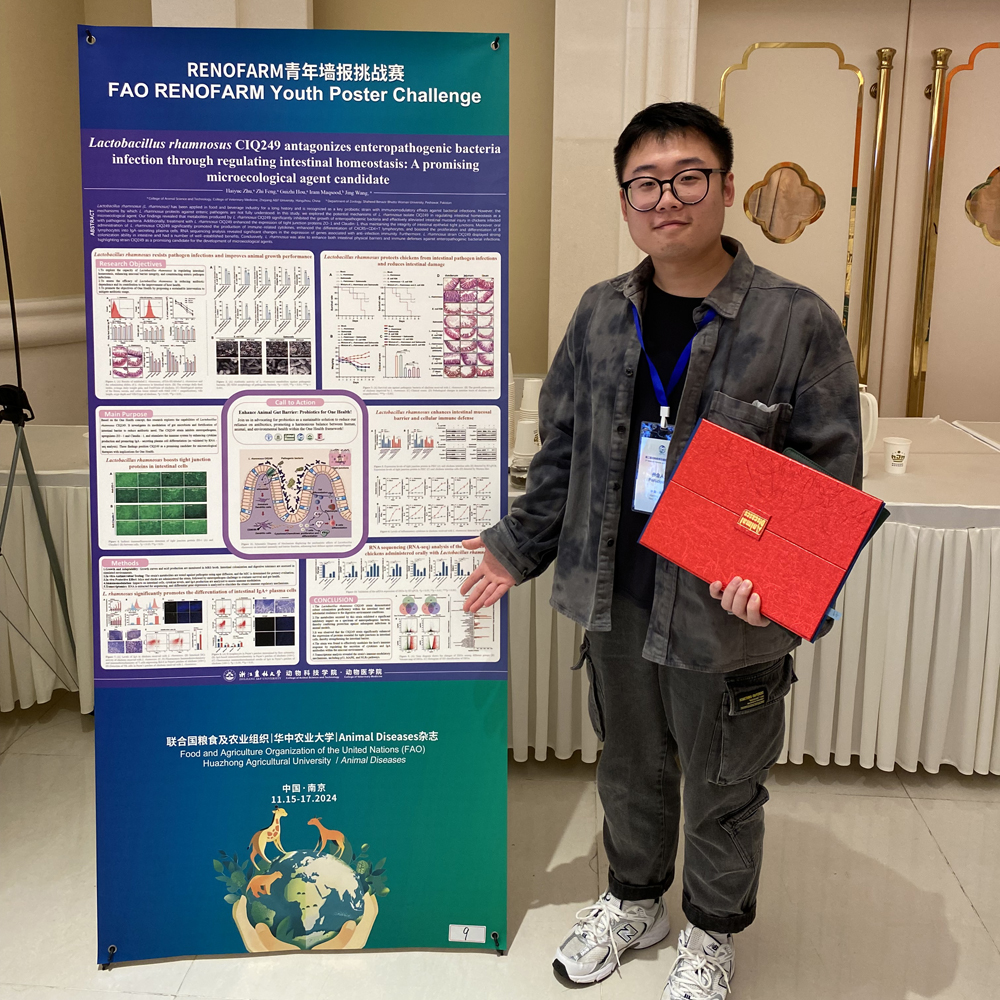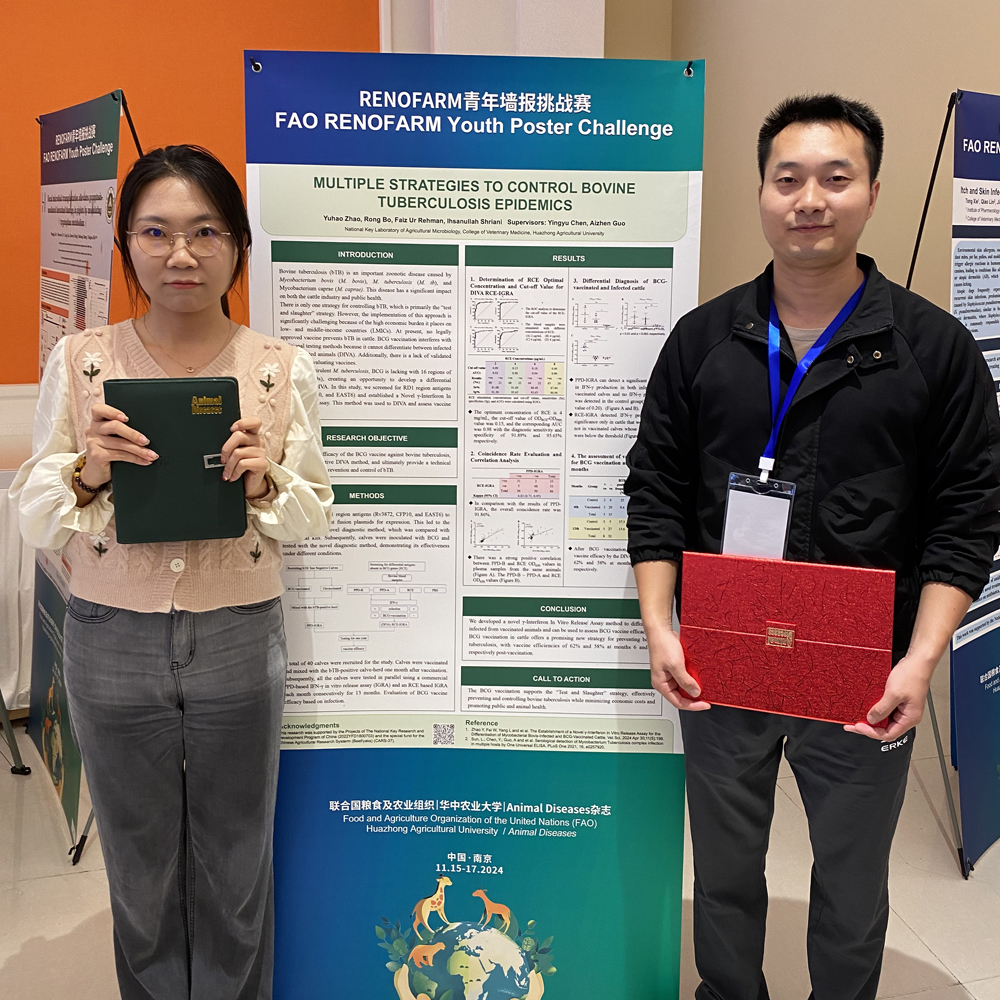
RENOFARM youth poster challenge
The RENOFARM Youth Poster Challenge, held from 15–17 November 2024 in Nanjing, China, showcased the creativity and innovation of young minds passionate about sustainable agrifood systems. This unique event, organized as part of the Second Animal Disease and Health Forum brought together young research teams aged 18–35 from diverse backgrounds, representing over 23 countries with over 107 submissions, to present their research and ideas through posters on the themes of pioneering One Health solutions for reducing the need for antibiotics and animal diseases and human health.
Participants were invited to explore critical topics at the intersection of health between animal, human, and the environment including food safety and security, animal welfare, and climate-smart agriculture. The challenge provided a platform to amplify youth perspectives, foster intergenerational collaboration, and inspire actionable solutions to pressing global challenges. Some posters featured Artificial Intelligence in developing therapeutics and recycling tea waste into animal feed to boost immune systems.
"Empowering the next generation through the RENOFARM Youth Poster Challenge goes beyond showcasing their talents; it nurtures their potential to transform agrifood systems. This initiative equips young minds to tackle today’s pressing challenges and shape a sustainable future for global food security tomorrow.” Junxia Song, FAO senior animal health officer, One Health coordination and AMR cluster lead
Beyond the competition, the RENOFARM Youth Poster Challenge emphasized youth empowerment and knowledge exchange, with participants receiving feedback from leading experts in agrifood systems and One Health. This event highlighted the indispensable role of youth in shaping a future where sustainable practices and intersectoral collaboration form the bedrock of global food security.
The RENOFARM Youth Poster Challenge celebrated exceptional innovation and dedication to solving global health challenges with three entries jointly awarded first place.
The RENOFARM initiative provides countries with policy support, technical assistance, capacity building, and knowledge sharing to help reduce the need for antimicrobials on farms in agrifood systems.
Youth engagement is key to the success of RENOFARM, especially when it comes to rolling out the Farm 5Gs: Good Health Services, Good Production Practices, Good Alternatives, Good Incentives, Good Connection.



Towards reduced reliance on antimicrobials
This poster describes the development of a new vaccine for Salmonella Enteritidis, a bacteria that causes disease in poultry and contaminates the food supply. The researchers’ goal is to reduce the need for antibiotics in poultry farming and improve poultry health and food safety.
Intestinal health with Lactobacillus
Lactobacillus rhamnosus (L. rhamnosus) is a well-known probiotic widely used in foods and drinks. It supports the immune system and helps protect against harmful bacteria. However, exactly how it works is not fully clear. This study looked at the potential of the strain, L. rhamnosus CIQ249 to improve gut health and reduce the need for antibiotics in livestock production. This strain could serve as a strong candidate for developing microecological agents, advancing probiotic research and sustainable animal health service.
Tackling bovine tuberculosis epidemics
The youth scientists focused on specific parts of bTB genome that are missing in the BCG vaccine. They used these antigens to create a new diagnostic test that differentiates between vaccinated and infected animals. In the study, it enabled to evaluate vaccine efficacy in forty calves, offering hope for better bTB control in the future using the BCG vaccine.
